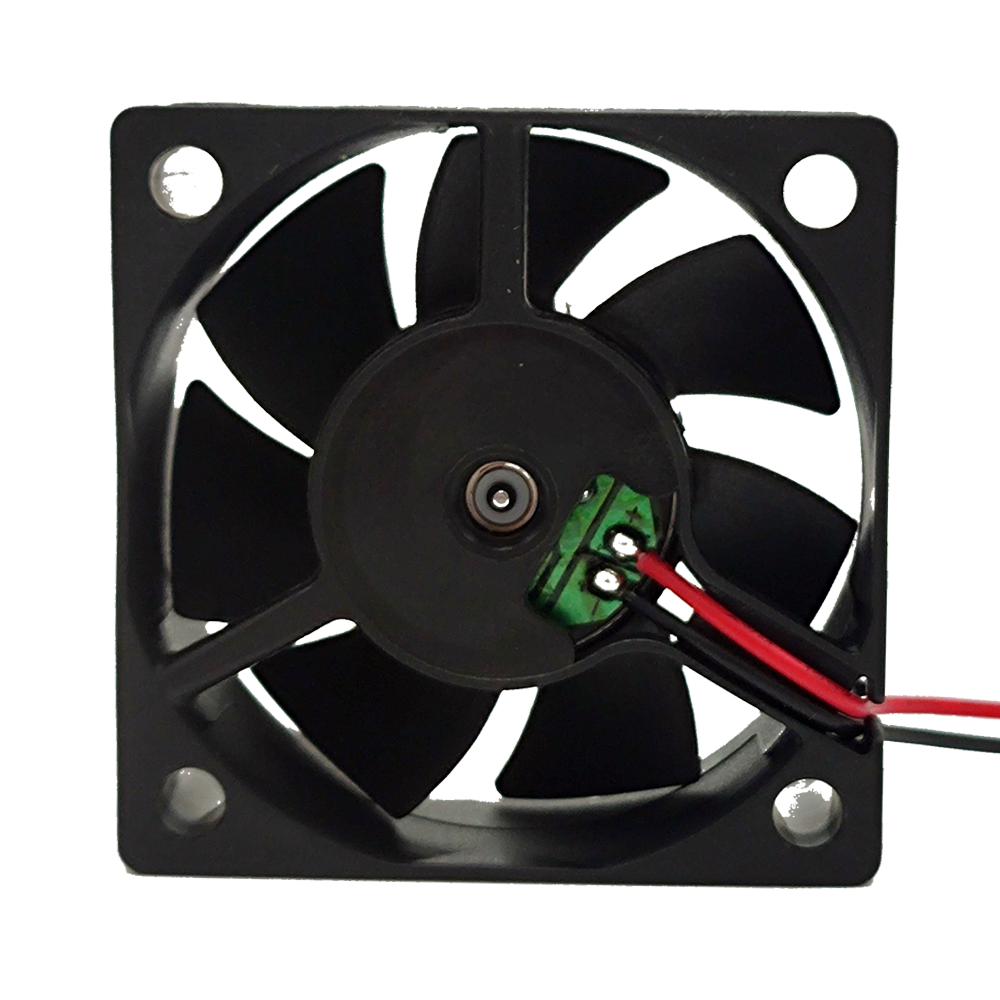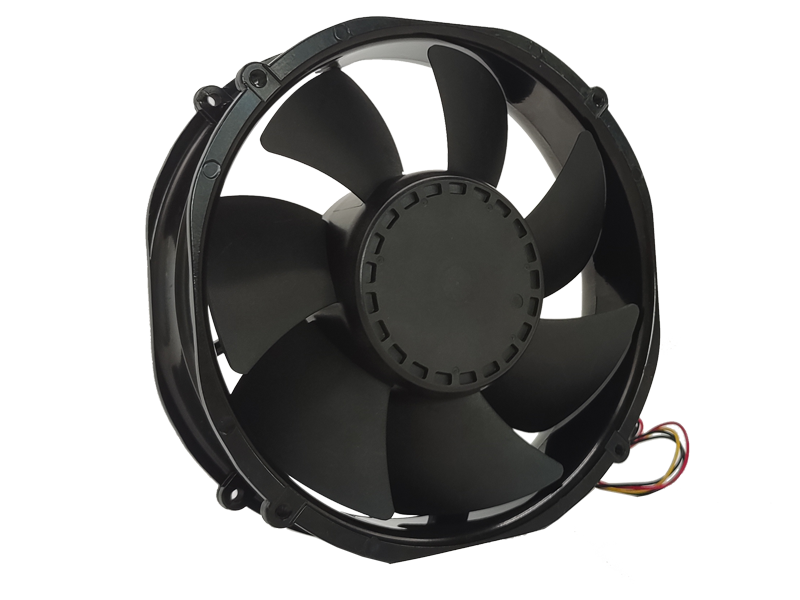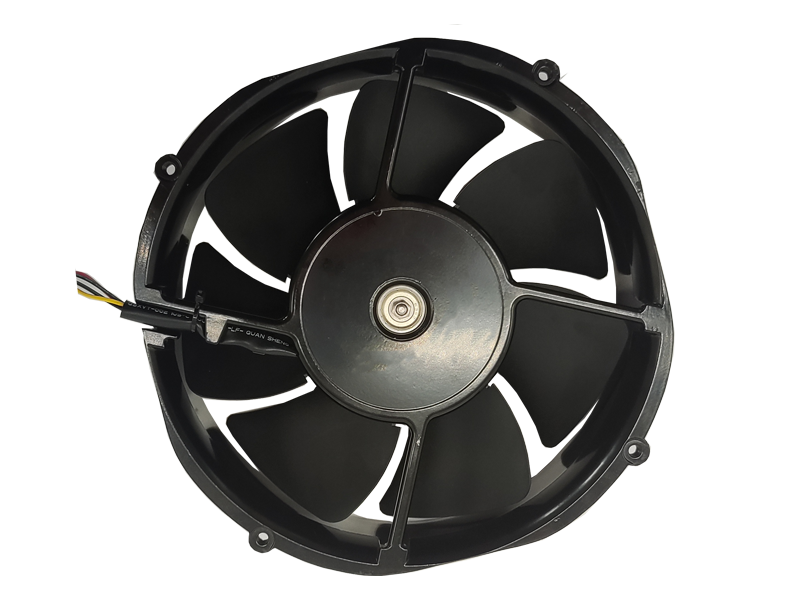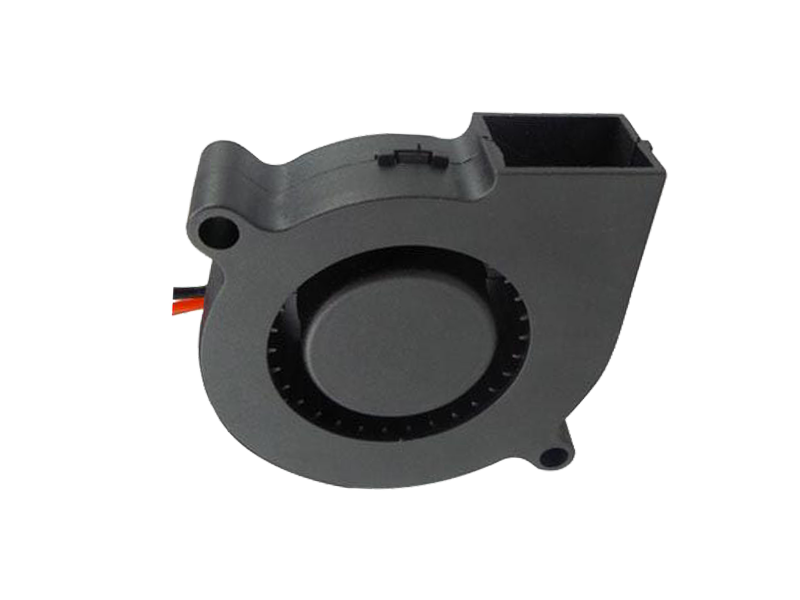Introduction
Industrial fans are the unsung workhorses of modern manufacturing, data centers, and commercial spaces. Unlike their consumer-grade counterparts, these robust devices must operate relentlessly in harsh environments—enduring extreme temperatures, dust, vibration, and continuous use. From ventilating factories to cooling server racks, industrial fans are engineered to prioritize reliability, efficiency, and longevity. This article explores the core principles guiding industrial fan design, emphasizing how product teams balance performance, durability, and cost to meet the exacting demands of industrial clients.
Core Design Principles for Industrial Fans
1. Airflow Efficiency: The Science of Movement
Industrial fans are defined by their ability to move large volumes of air (measured in cubic feet per minute, CFM) with minimal energy consumption. Key design considerations include:
Blade Geometry: Aerodynamic profiles (e.g., backward-curved blades) reduce turbulence and improve static pressure, critical for pushing air through ducts or filters.
Motor Efficiency: High-torque motors (AC or EC) with IE4/IE5 energy ratings minimize power waste. For example, a 36-inch industrial fan using an EC motor can achieve 90% efficiency, cutting energy costs by 30% compared to traditional AC motors.
Housing Design: Spiral or plug-fan housings direct airflow efficiently, reducing backpressure and noise.
Case Study: A automotive paint booth manufacturer redesigned its fan housing using computational fluid dynamics (CFD), increasing airflow by 15% while lowering noise to 65 dB—meeting OSHA’s workplace safety standards.
2. Durability in Harsh Environments
Industrial fans operate in conditions far beyond typical office settings:
Temperature Extremes: Fans in steel mills must withstand ambient temperatures exceeding 120°F (49°C), requiring heat-resistant materials like epoxy-coated steel or aluminum alloys.
Dust and Particulates: Agricultural or woodworking facilities demand fans with IP65 ratings and washdown-compatible designs to prevent clogging.
Vibration Resistance: Balanced impellers and anti-vibration mounts reduce stress on bearings, extending lifespan.
Case Study: A cement plant in Southeast Asia reduced bearing failures by 80% after switching to fans with nickel-coated blades and triple-lip seals, which resisted abrasive dust particles.
3. Customization for Niche Applications
No two industrial environments are identical. Leading manufacturers offer modular designs:
Explosion-Proof Fans: Certified for ATEX/IECEx zones, using non-sparking materials and sealed motors for oil refineries or chemical plants.
Corrosion-Resistant Fans: Fiberglass-reinforced polyester (FRP) blades for coastal or wastewater treatment facilities.
High-Temperature Fans: Ceramic-coated impellers and belt-driven systems for furnaces or foundries.
Case Study: A pharmaceutical company in Germany commissioned custom fans with stainless-steel blades and HEPA filter integration, ensuring sterile airflow for cleanroom applications.
Balancing Performance and Cost
1. Total Cost of Ownership (TCO) Analysis
Industrial buyers prioritize TCO over upfront cost. A high-quality fan with a 10-year lifespan and 2% annual maintenance costs often outperforms a cheaper model requiring biannual replacements. Key TCO factors include:
Energy Consumption: A 50,000-hour EC motor fan may cost 20% more upfront but save $1,200/year in electricity.
Downtime Risks: A server farm fan failure can cost $10,000/hour in lost productivity, justifying premium redundancy features.
2. Regulatory Compliance
Industrial fans must adhere to global standards:
AMCA Certification: Ensures airflow and sound performance meet industry benchmarks.
CE/UL Listing: Critical for European and North American markets.

ErP Directive: Compliance with EU energy efficiency rules for motors >0.75 kW.
Future Trends: Smart Industrial Fans
The rise of Industry 4.0 has spurred integration with IoT and AI:
Predictive Maintenance: Sensors monitor vibration, temperature, and current draw, alerting managers to bearing wear before failure.
Demand-Based Control: Fans adjust speed via Modbus or BACnet protocols, linking to building management systems (BMS) for optimal energy use.
Cloud Analytics: Platforms like Siemens MindSphere or Rockwell FactoryTalk analyze fan data to optimize entire HVAC systems.
Case Study: A food processing plant in the U.S. reduced energy costs by 25% using AI-driven fans that synchronized with refrigeration cycles, avoiding unnecessary runtime.
Conclusion
Industrial fans are a blend of brute force and precision engineering. Product teams must navigate a complex landscape of physics, materials science, and client-specific challenges to deliver fans that operate silently in the background—until they’re needed most. As industries demand greener, smarter solutions, the next generation of industrial fans will leverage advanced materials and digital integration to redefine reliability.
Recommended Products

The main purpose:Car charging station

The main purpose:Car charging station

The main purpose:Electronic refrigerators, water dispensers, direct drinking machines, inverter power supplies
Address:No. 4137, Longgang Avenue (Henggang Section), Henggang Community, Henggang Street, Longgang District, Shenzhen
hotline:13530005572(Chen)15112579390(Li)


Welcome all friends to come for consultation and negotiation.
Copyright 2024 @ Shenzhen Youneng Xinyuan Electronics Co., Ltd.,(industrial fans,industrial blowers,axial fans,cooling fans manufacturer,centrifugal fans,ac cooling fans,dc cooling fans)